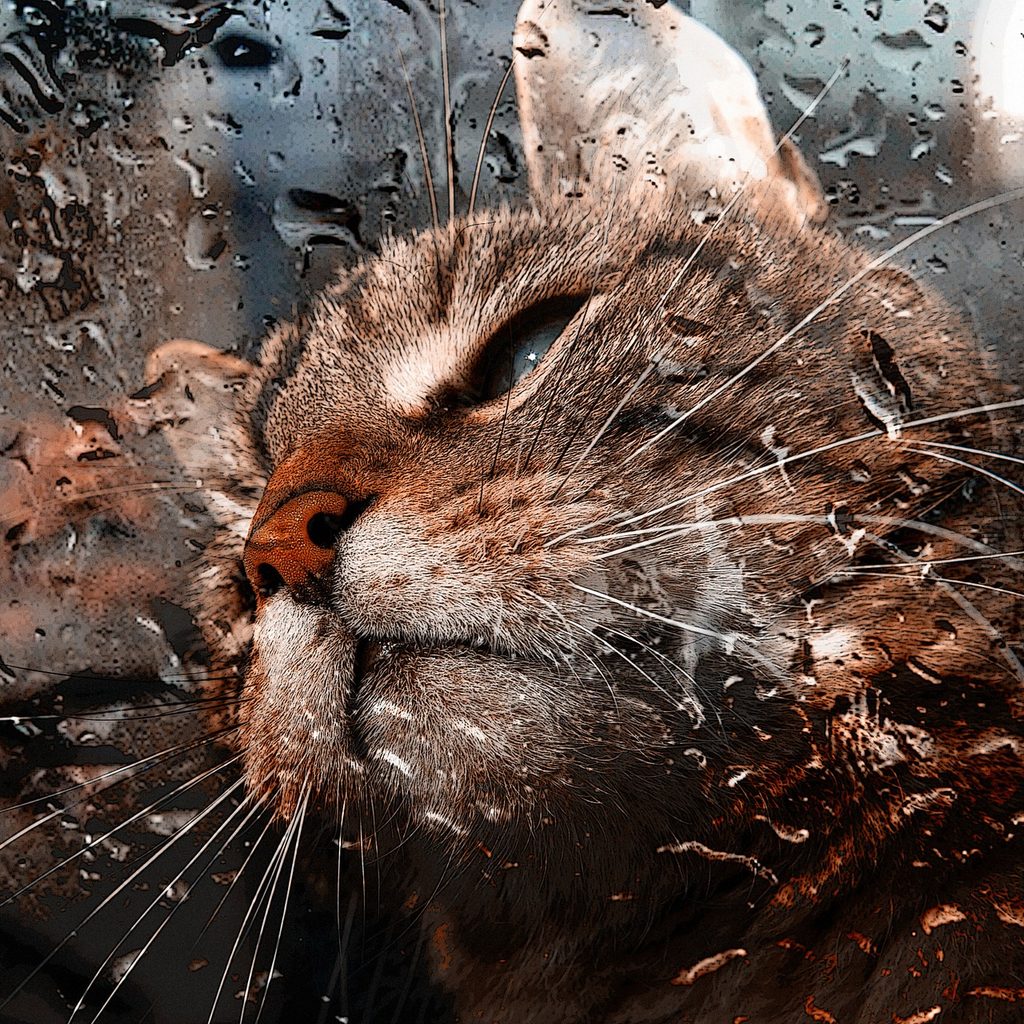If you’ve ever seen your cat get caught in the rain, you’ve probably seen him flatten his ears, sink down low to the ground, and run for the nearest shelter available. It’s no secret that most cats hate water and rain in general. But with rain often in the forecast in the spring, your cat is likely to get a bit wet if he spends time outdoors. It’s easy to understand why your cat hates the rain so much when you learn about how his body works. It’s also pretty easy to find ways to help keep him dry, even during those rainy spring days.

Why cats hate rain
According to Reader’s Digest, there are many reasons why cats hate water and rain. If your cat gets rained on, that water makes his coat heavier and colder, which can be uncomfortable for him. That wet coat can take a while to dry, especially if your cat has a thicker coat that’s drenched through.
The extra weight of a wet coat may affect your cat’s agility and balance, too. While cats are typically fast and capable of jumping, extra weight can affect their ability to move around easily. In the wild, cats’ speed and reflexes are a natural defense mechanism, and getting their coats wet could potentially jeopardize their safety.
Keep in mind that water is also largely unfamiliar to cats. Your cat may spend a large amount of time grooming, but he’s rarely exposed to large bodies of water. If it starts to pour outside, your cat will instinctively seek shelter, so he never really experiences what the rain is all about. As a result, if your cat is ever truly caught in the rain, he may react in fear simply because it’s something he hasn’t experienced.
Cats who don’t mind the water
While plenty of cats will happily head indoors when it’s raining, some cats don’t have this same aversion to water. Big cats, like tigers, are particularly enthusiastic about water and swimming.
But some housecat breeds are also happy to go for a swim. According to The International Cat Association, the Turkish Van is an ancient cat breed that’s often called the “swimming cat.” These cats are avid swimmers, and they may even be happy to join you in the bathtub. Reader’s Digest notes that breeds like the Bengal and Abyssinian are also often willing to get wet. This may be because their coat texture makes them more resistant to water, so they don’t feel the discomfort of being wet like other breeds do.

How to help your cat cope with rain showers
Your cat might not like the rain, but rain showers are a part of life, especially in the spring. Fortunately, there are multiple ways that you can help keep your cat comfortable, even when it’s raining out.
If your cat spends time outside, make sure that you provide him with ways to get out of the rain. Cats will automatically retreat under porches and vehicles, and they’re pretty good at seeking out shelter. You might leave the door to your enclosed porch propped open if you know that rain’s in the forecast that day, or keep your shed open so your cat can head inside if he wants.
If you’ll be leash-walking your cat on a rainy day, consider getting him a cat raincoat. Introducing the raincoat may take some time, and your cat will need to get used to the sensation of wearing the coat. However, the coat can give him some extra protection if it starts to rain when you’re still a ways from home.
You might also consider installing a pet door to give your cat free access to let himself back into your house if it starts to rain. If you’re considering a pet door, make sure that it’s appropriately sized for your cat, and choose a door with a latch that lets you lock it at night. Some doors even pair with a sensor that you can mount on your cat’s collar, ensuring the door will only operate for your cat and not for any wildlife or other pets that happen to come strolling through.
If you’ve ever been unexpectedly caught in a chilly downpour, you can probably understand why your cat isn’t a big fan of water. Unsurprisingly, springtime showers aren’t a whole lot of fun for your cat. If your cat does go outside and gets caught in a shower, remember that chances are he knows how to stay out of the rain just fine, so try not to worry too much about him. If you know that rain is in the forecast, you can see if your cat is willing to stay in the house that day. A nice window seat in a warm spot can be tempting, and your cat will probably appreciate the chance to stay dry and warm inside.



